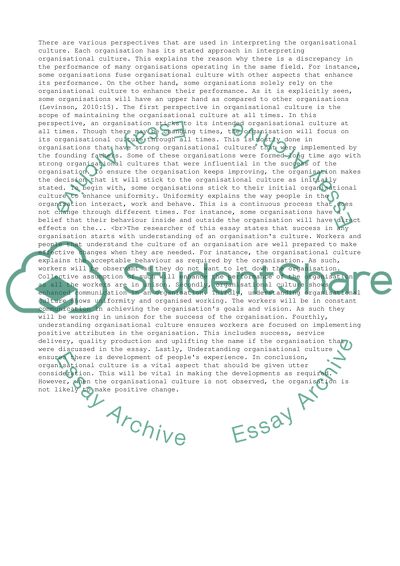Cite this document
(“Organizational Culture Essay Example | Topics and Well Written Essays - 1500 words”, n.d.)
Organizational Culture Essay Example | Topics and Well Written Essays - 1500 words. Retrieved from https://studentshare.org/management/1481324-organizational-culture
Organizational Culture Essay Example | Topics and Well Written Essays - 1500 words. Retrieved from https://studentshare.org/management/1481324-organizational-culture
(Organizational Culture Essay Example | Topics and Well Written Essays - 1500 Words)
Organizational Culture Essay Example | Topics and Well Written Essays - 1500 Words. https://studentshare.org/management/1481324-organizational-culture.
Organizational Culture Essay Example | Topics and Well Written Essays - 1500 Words. https://studentshare.org/management/1481324-organizational-culture.
“Organizational Culture Essay Example | Topics and Well Written Essays - 1500 Words”, n.d. https://studentshare.org/management/1481324-organizational-culture.


